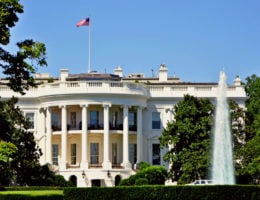On 9 March 2024, the Biden Administration released its proposed budget for fiscal year 2025, and the Treasury Department released its General Explanations of the Administration’s Fiscal Year 2025 Budget Proposals, commonly known as the “Greenbook.” Many of the proposals in this year’s Greenbook appeared in earlier years, but a few proposals are new or modified. Due to the divided Congress and competing political priorities during a general election year, there is little chance that any of the Greenbook proposals will be passed into law in 2024. However, the Greenbook illustrates the consistency of the President’s tax policy objectives during his first term and maps out priorities for a possible second term.
For months, Treasury’s attention may have been focused on guidance implementing the Inflation Reduction Act, particularly the green energy provisions. Seasoned tax professionals know better than to let their guards down as fall turns to winter, however. Treasury and the IRS are notorious for releasing a flurry of guidance before the new year, often addressing imminent deadlines or tidying up loose ends.
Two recent tax controversies demonstrate the authority of US courts in situations where a taxpayer’s assets are held in a country different than the taxpayer’s country of residence. In United States v. Kelly, a US person held assets in a Swiss bank account and failed to file a Foreign Bank Account Report (FBAR), and the court ordered repatriation of those assets to the United States. In Puri v. United States, an Indian taxpayer held assets in a US bank account, and the United States Supreme Court denied certiorari, finalizing the district court’s order that denied taxpayer’s motion to quash an administrative third-party summons issued by the IRS.
On 9 June 2023, the White House released a memorandum of agreement between the Treasury Department and the Office of Management and Budget, which clarifies that tax regulations will not be subject to review by the Office of Information and Regulatory Affairs and, in doing so, supersedes and essentially reverses a 2018 memorandum of agreement from the Trump administration.



